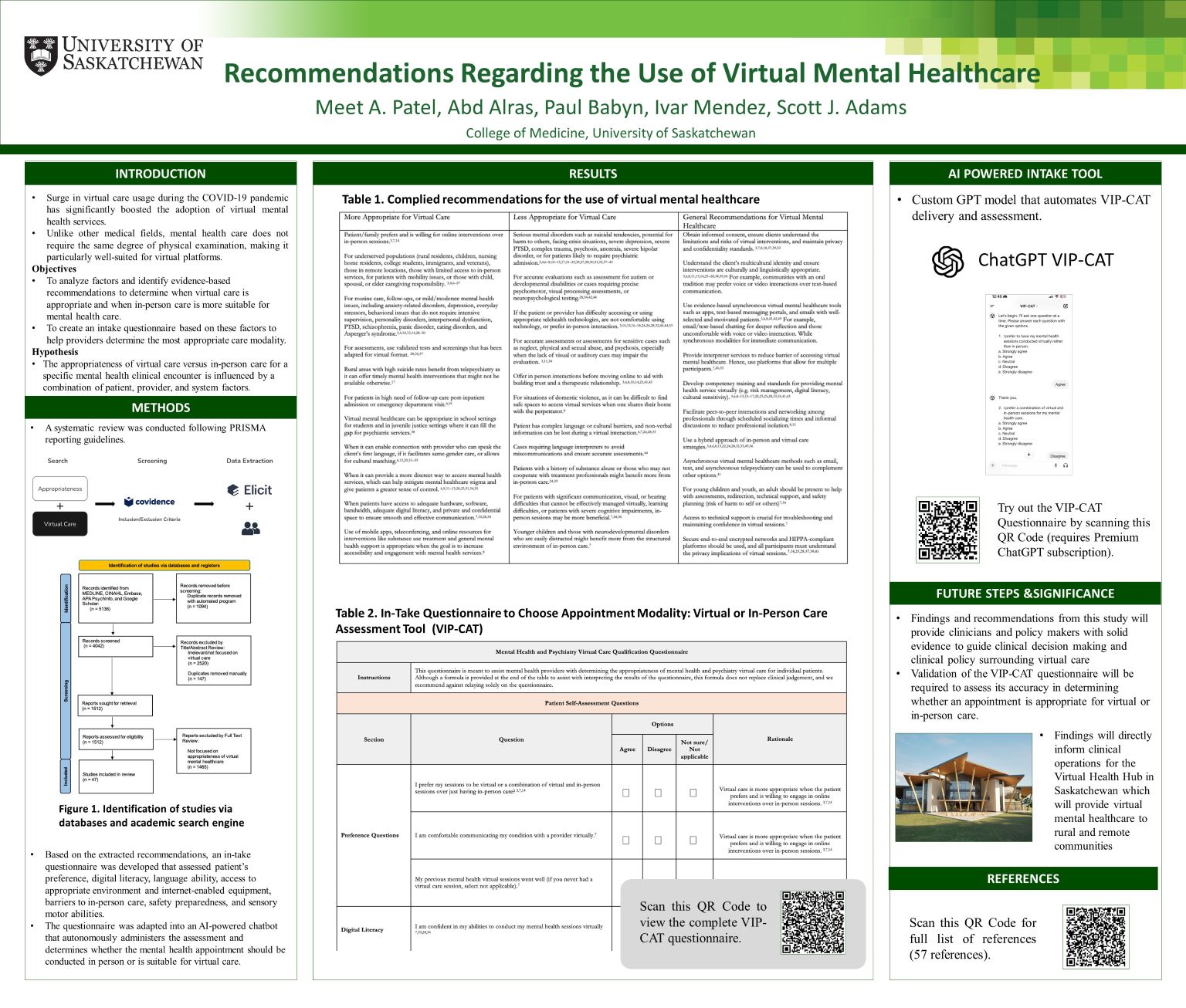
Recommendations Regarding the Use of Virtual Mental Healthcare: A Systematic Review
Meet Patel
Technological advancements and increased patient and provider acceptance has accelerated the adoption of virtual mental healthcare (VMH). With a broader array of options for VMH interactions, clinicians must now assess which method of interaction is most appropriate for a given patient and episode of care to ensure patient safety and quality care. Our study aimed to identify recommendations for determining when virtual or in-person care is more appropriate for mental healthcare and, from these recommendations, develop an intake questionnaire to help providers determine the most appropriate care modality. We conducted a systematic review with reporting based on PRISMA guidelines. From the systematic review, the recommendations indicated that VMH is considered appropriate for underserved populations, individuals with mild to moderate mental health conditions, and in situations where language or cultural matching are important. VMH was less appropriate for patients with severe mental disorders, conditions requiring precise assessments (e.g., autism, developmental disabilities), and in cases such as domestic violence where finding a safe space for virtual care may be challenging. Based on these recommendations, we developed the Virtual or In-Person Care Assessment Tool (VIP-CAT) questionnaire to aid providers in determining the appropriateness of VMH for specific clinical encounters. Findings and recommendations from this study will provide clinicians and policy makers with solid evidence to guide clinical decision making and clinical policy surrounding VMH.
